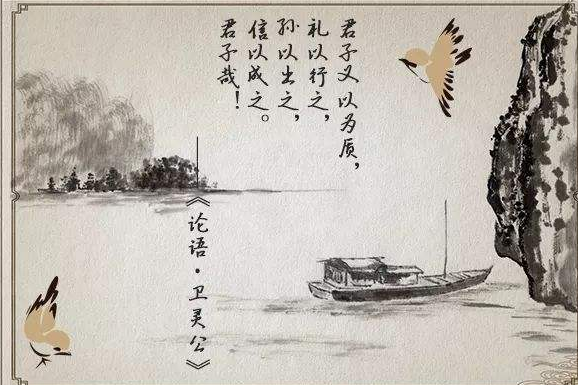(单词翻译:单击)
The Master said, "Let his words be sincere and truthful and his actions honorable and careful, such conduct may be practiced among the rude tribes of the South or the North;
子曰:“言忠信,行笃敬,虽蛮貊之邦行矣;
If his words be not sincere and truthful and his actions not honorable and careful, will he, with such conduct, be appreciated, even in his neighborhood?
言不忠信,行不笃敬,虽州里行乎哉?
When he is standing, let him see those two things, as it were, fronting him. When he is in a carriage, let him see them attached to the yoke,
立则见其参于前也,在舆则见其倚于衡也,
then may he subsequently carry them into practice."
夫然后行。”
Tsze-chang wrote these counsels on the end of his sash.
子张书诸绅。
The Master said, "Truly straightforward was the historiographer Yu. When good government prevailed in his state, he was like an arrow,
子曰:“直哉史鱼!邦有道如矢,
When bad government prevailed, he was like an arrow.
邦无道如矢。
A superior man indeed is Chu Po-yu! When good government prevails in his state, he is to be found in office.
君子哉蘧伯玉!邦有道则仕。
When bad government prevails, he can roll his principles up, and keep them in his breast."
邦无道则可卷而怀之。”
The Master said, "When a man may be spoken with, not to speak to him is to err in reference to the man;
子曰:“可与言而不与之言,失人;
When a man may not be spoken with, to speak to him is to err in reference to our words.
不可与言而与之言,失言。
The wise err neither in regard to their man nor to their words."
知者不失人亦不失言。”


